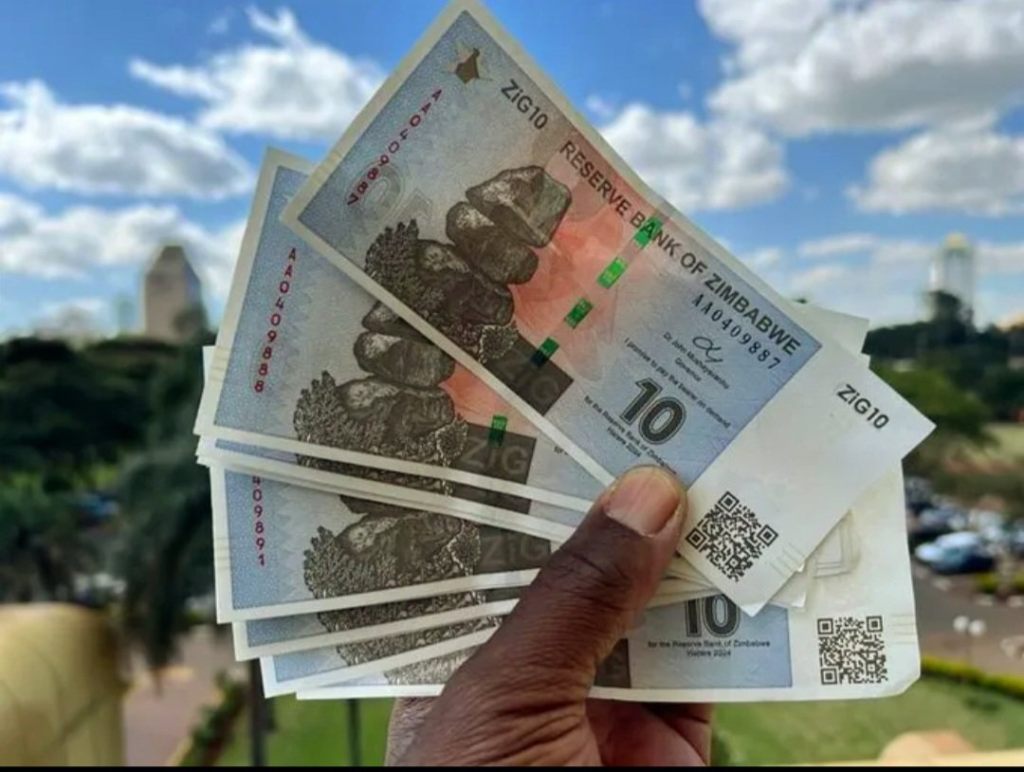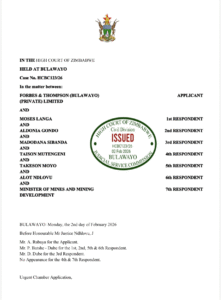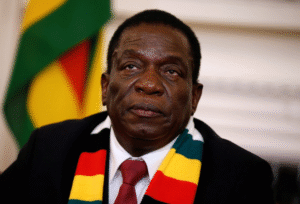ZIMBABWE’S CURRENCY CHAOS THREATENS ECONOMIC STABILITY

Zimbabwe is facing a big problem with its new currency, the ZiG, which was introduced earlier this year. The currency was supposed to be backed by gold and foreign reserves, but instead, it has caused more trouble. Retailers and businesses are worried that they might be forced to close because of the problems caused by the ZiG. The economy is now more unstable, with higher inflation, high-interest rates, and many other issues.
The official exchange rate of the ZiG is set at 13.8 to the US dollar, but on the parallel market, the rate is much higher at 30 to 1 US dollar. This difference between the official rate and the parallel market rate is creating big problems. The value of the ZiG has fallen by almost 50% since its introduction. Official inflation is said to be around 3.7%, but some experts believe it is actually over 800%, making it one of the highest in the world.
One of the main problems is the increase in the money supply, which is now around 283%. However, the velocity of money is low, meaning people are not spending much. A high velocity of money usually shows a healthy economy with lots of activity, but when it is low, it means people are hesitant to spend. To try and support the ZiG, authorities initially tried to reduce the money supply, but this has not worked, and now there is a shortage of ZiG notes. As a result, the US dollar is still widely used across the country.
President Emmerson Mnangagwa has expressed his intention to stop using the US dollar and only use the ZiG. However, many believe that the ZiG will fail, just like the country’s previous currencies. Mnangagwa has extended the use of foreign currency until December 2030, but the uncertainty surrounding the currency continues to grow.
At the heart of Zimbabwe’s economic problems is the chaos caused by its currency. The Reserve Bank of Zimbabwe (RBZ), led by John Mushayavanhu, has promised not to print more money. However, the RBZ has had to print money to manage the economy, the currency, and the exchange rate. This attempt to micromanage the economy has led to more issues, including distortions in the exchange rate, inflation, and inefficient resource allocation.
Micromanaging money supply by first reducing it and later increasing it, despite the shortage of ZiG notes, has caused inflation to rise again. Interest rates are now distorted, and businesses are finding it hard to operate in such an unpredictable environment. Inflation control measures have not worked, and prices remain unstable, which has caused further uncertainty for businesses.
Retailers are now asking the government to step in and help them, as they are at risk of closing. Despite claims by the authorities that the ZiG has brought stability, the reality is that it has made things worse. Formal retailers are forced to use the official exchange rate, making their products much more expensive than those sold on the informal market.
The Retailers Association of Zimbabwe (RAZ), which includes major companies like OK Zimbabwe, PicknPay, and SPAR, has warned that if things do not improve, the formal retail sector could collapse. The ZiG has created distortions and instability, leading to serious concerns about the future of these businesses.
Analysts argue that the ZiG was never going to solve Zimbabwe’s problems without addressing the underlying issues, such as politics and leadership. They say that the country needs structural reforms to improve the business environment, strengthen governance, and reduce corruption. Zimbabwe’s economic governance has major weaknesses, and corruption is a big problem. Fixing these issues is essential for long-term growth.
Another issue Zimbabwe faces is its inability to access external funding. The government is currently relying on private companies for expensive loans, which further complicates the situation. International re-engagement is necessary for debt resolution and accessing more affordable financial support. However, the US, a key player in these talks, has stepped back, leaving Zimbabwe isolated. Without international support, Zimbabwe’s economy will continue to struggle.
In conclusion, Zimbabwe’s currency crisis is causing severe damage to the economy. The ZiG, which was supposed to bring stability, has only made things worse. Retailers and businesses are facing closure, and the country needs strong reforms to overcome its current challenges.





